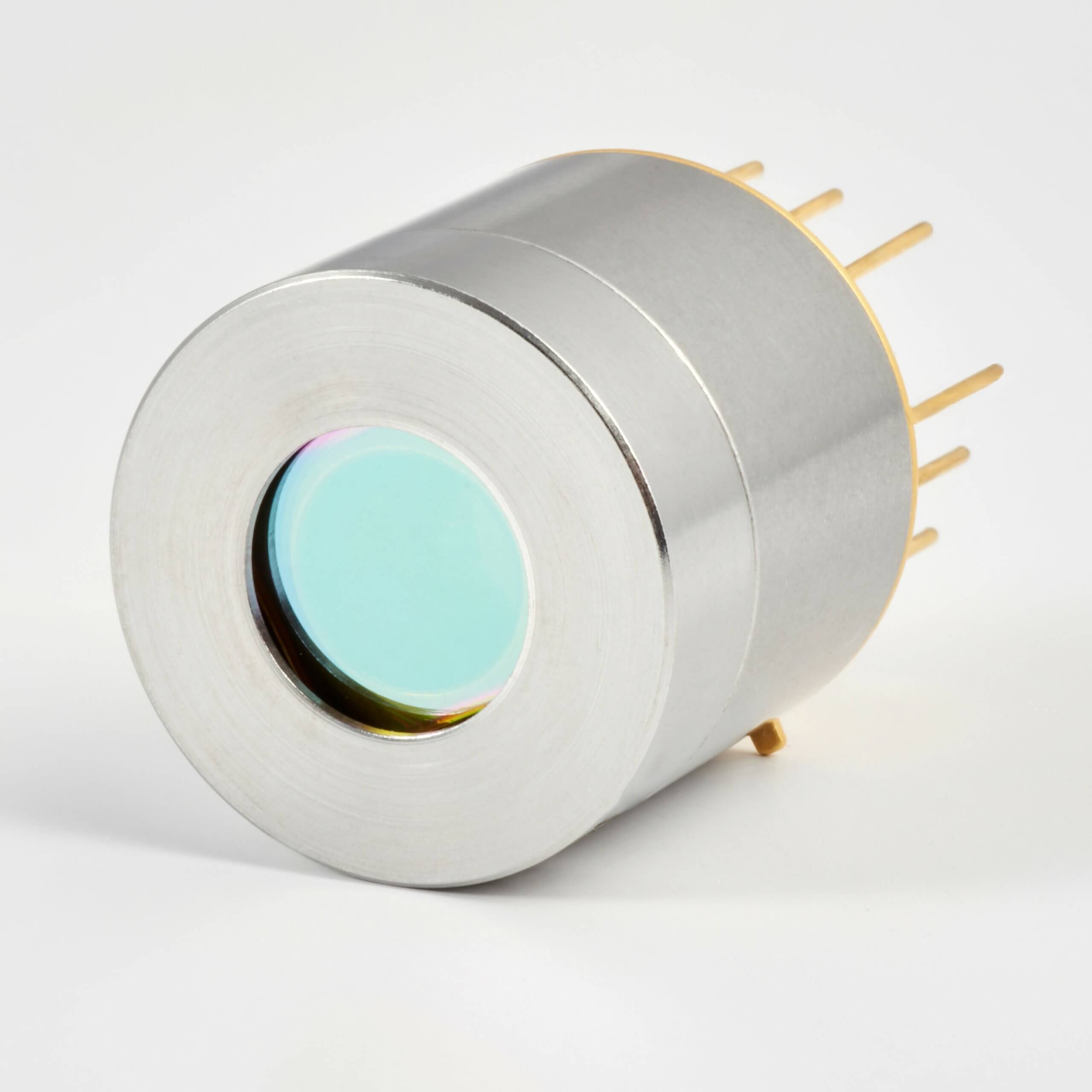InAsSb superlattice four-stage thermoelectrically-cooled optically immersed photovoltaic infrared detectorPVIA-4TE-13-1x1-TO8-wZnSeAR-36
PVIA-4TE-13-1x1-TO8-wZnSeAR-36 is a four-stage thermoelectrically cooled (4TE) photovoltaic IR detector based on an InAsSb superlattice heterostructure for optimal performance and stability, optically immersed to enhance the parameters. It enables the detection of radiation in the range from 1.8 μm to 13.8 μm. Its optical area (Ao) is 1 mm × 1 mm. The detector is available in the TO8 package with a 3 deg. wedged zinc selenide anti-reflection coating window (wZnSeAR) to prevent unwanted interference effects.

Features
Spectral range: 1.8 to 13.8 µm
RoHS-compliant III-V material
Unique optical immersion technology applied
Back-side illuminated
Long term stability
Fast response
No minimum order quantity required
Applications
FTIR spectroscopy
Gas detection, monitoring and analysis: C2H6
Toxic gas detection
Gas leak detection
Detector configuration
|
Detector symbol
|
PVIA-4TE-13-1x1-TO8-wZnSeAR-36 |
|
|
Detector type
|
photovoltaic |
|
| Active element material | epitaxial InAsSb superlattice heterostructure | |
| Cooling | 4TE (Tchip ≅ 200 K) | |
| Temperature sensor | thermistor | |
| Optical area, Ao | 1 mm × 1 mm | |
| Optical immersion | hyperhemisphere | |
| Package | 4TE-TO8 | |
| Acceptance angle, Φ | ~36 deg. | |
| Window | wZnSeAR (3 deg. wedged zinc selenide, anti-reflection coating) | |
Specification
(Tamb = 293K, Tchip = 200 K, Vb = 0 V)
| Parameter | Typical value | Unit | ||
| Min. | Typ. | Max. | - | |
| Cut-on wavelength, λcut-on (10%) | - | 1.8 | - | μm |
| Peak wavelength, λpeak | - | 10.5 | - | μm |
| Cut-off wavelength, λcut-off (10%) | - | 13.8 | - | μm |
| Detectivity, D* (λpeak, f = 20 kHz) | 1.8×109 | 3.0×109 | - | cm·Hz1/2/W |
| Current responsivity, Ri (λpeak) | 0.21 | 0.38 | - | A/W |
| Time constant, τ | - | 3 | - | ns |
| Dynamic resistance, Rd | 80 | 120 | - | Ω |
Spectral response
(Typ., Tamb = 293 K, Tchip = 200 K)

Access to file
Access to this file is limited. In order to download it, please provide all the information and submit the form.
Application notes
![]()













